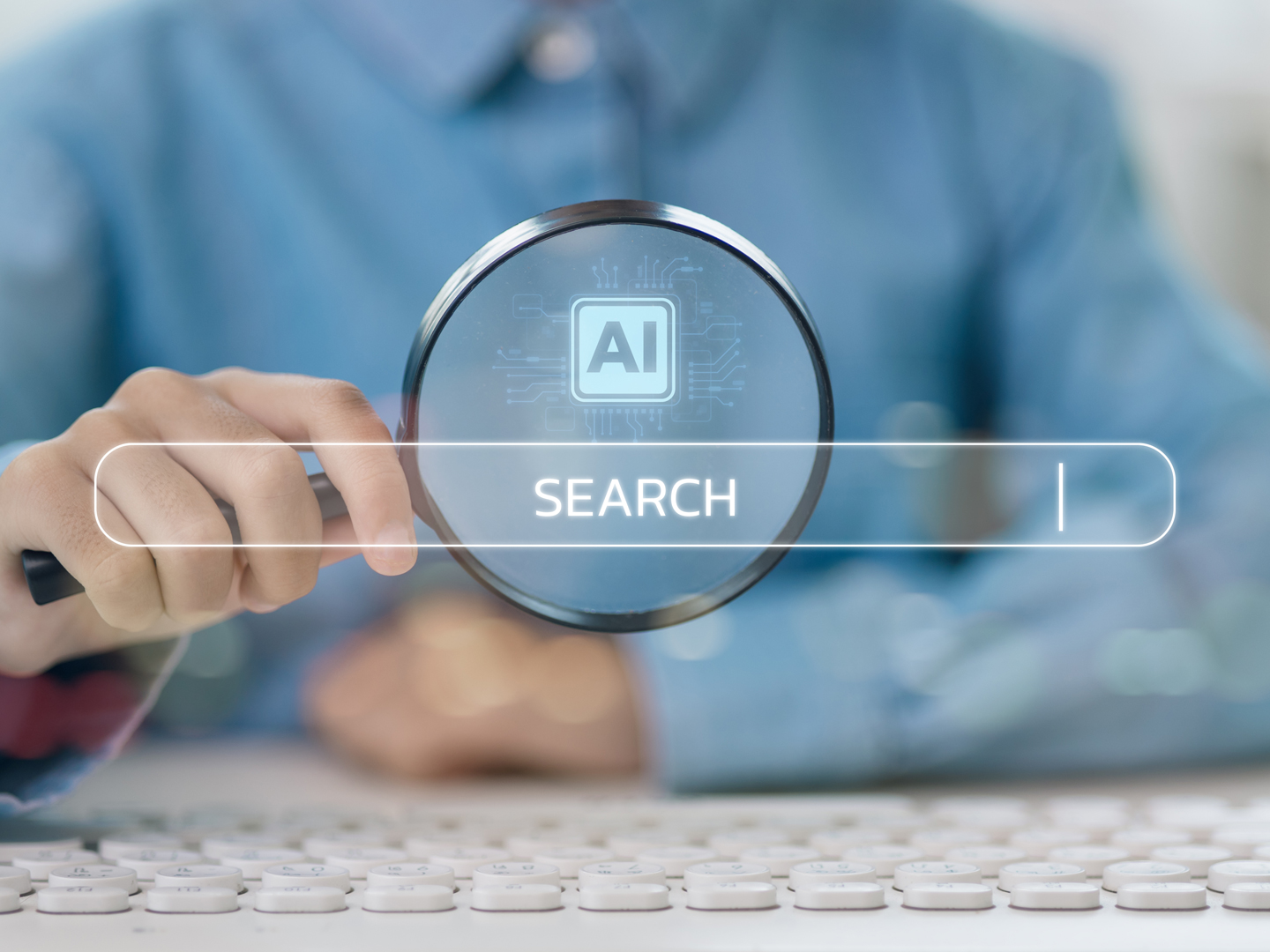SEO remains one of the most powerful tools for enhancing the online presence of any business. However, in recent years, artificial intelligence (AI) has begun transforming the way search engine optimization is carried out.
AI tools can assist with everything from shaping SEO strategy and analyzing data to optimizing it and predicting new trends.
With the continued use of AI tools in this specific area of marketing, a new term has emerged: AI SEO.
What exactly is AI SEO?
That’s what we’ll analyze in the new article.
What is AI SEO?
AI SEO leverages artificial intelligence tools to better understand:
how search engine algorithms work
what users are searching for in real-time
what content holds value and how it should be presented
In simple terms, AI SEO allows brands not only to keep up with search engine changes—like those from Google—but also to predict and capitalize on them.
Main Applications of AI SEO
- Keyword research with the help of AI
Traditional keyword research required tools, a lot of time, and several trial-and-error attempts to find the right keyword combinations. With artificial intelligence, this process becomes more accurate and strategic.
AI can process massive volumes of data in minimal time, analyzing search trends, related keywords, and competition levels for each keyword.
This allows businesses to discover low-competition but high-search-volume keywords that may have been missed using conventional methods. By leveraging these keywords, you can build stable and organic website traffic and stand out from fierce competition.
- Content optimization
Content quality is the foundation of every SEO strategy.
AI tools can deeply analyze top-ranking results on search engines and suggest improvements in areas such as text structure, headings, paragraphs, keyword density, and keyword placement.
Additionally, they can propose ideas for extra content sections or FAQs (frequently asked questions) that enhance the value of the content. So, we’re not just talking about well-written text but content (in all its forms) that’s both user-friendly and search-engine-friendly.
In this way, AI turns content into a strategic tool that boosts rankings while providing real value to the reader.
- Search intent analysis
Search engines no longer prioritize just keywords—they also look at the “why” behind each search. AI can analyze whether the user’s intent is informational (seeking knowledge), transactional (wanting to make a purchase), or navigational (looking for a specific website).
With this data, businesses can tailor their content more accurately to deliver exactly what the user needs.
For example, in an informational search, a useful blog post is more valuable than a product page. Thus, the content becomes more targeted, improving both SEO ranking and conversion rate.
- Optimization for voice & visual search functions
The rise of voice search through Google Assistant, Siri, and Alexa, as well as visual search through tools like Google Lens, is radically changing the SEO landscape.
AI helps businesses adapt their content to answer questions in a more natural, conversational tone, as a user would speak.
At the same time, it can optimize images with correct alt texts and metadata so they appear in image searches.
This adaptation isn’t just a trend—it’s a strategic necessity, as more and more users choose these search channels.
- Predictive SEO
Artificial intelligence isn’t limited to the present—it has the power to “look ahead.” Through big data analysis, it can identify new trends and keywords in their early stages, before they peak.
This gives businesses the opportunity to create content early, securing high positions in search results when interest peaks.
In practice, Predictive SEO means you’re not just chasing trends—you’re staying ahead of them, gaining a valuable competitive edge.
The benefits of AI SEO
- Time-saving: automates time-consuming processes.
- Big data analysis: extracts insights a human alone could hardly find.
- Targeted content: keywords, audience, and timing are accurately aligned.
- Higher rankings: greater chances of appearing at the top of search results.
As useful as AI SEO is, it doesn’t replace the human factor. Without the strategic thinking and creativity of professionals, the tools won’t receive the right information and commands to generate the desired results.
Pro tip: Balancing human–AI collaboration is crucial to maintaining your brand voice’s authenticity.
AI SEO isn’t a passing trend—it’s the future of optimization. Businesses that make the most of artificial intelligence will gain a clear competitive advantage.
At Pylarinos Advertising, we combine our experience with the most advanced AI SEO tools to deliver strategies that drive real results. Want to know how AI SEO can push your business to the top of search rankings? Contact us today.













